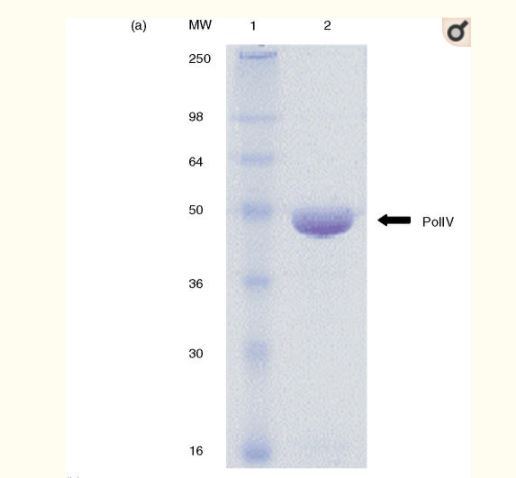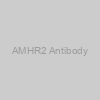
Purified Native dsDNA, calf thymus
INTRODUCTION
Systemic lupus erythematosus (SLE) is an autoimmune rheumatic sickness affecting principally ladies all through their childbearing years. Immunoglobulin G (IgG) antibodies to double-stranded (ds)DNA are serological markers of SLE that often replicate sickness train1, 2 and are fastidiously associated to its pathogenesis.3 These antibodies are considered to be explicit for lupus as they’re hardly current in numerous sickness circumstances.
However, every medical and animal model analysis clearly current that not all antibodies to DNA (anti-DNA) are equally able to set off tissue harm in SLE. Anti-DNA-induced renal damaging functionality might very nicely be linked to variations of their very good specificities (reviewed in ref. 5). By using two prototypic human monoclonal antibodies (mAbs) (B3 and RH14) on the market in our laboratory, we investigated the properties that make an anti-DNA pathogenic. These antibodies have been derived from victims with lupus, who had attribute sickness manifestations and possessed distinct and quite a few pathogenic properties.
ABSTRACT
Whereas immunoglobulin G (IgG) antibodies to double-stranded (ds)DNA are serological markers of systemic lupus erythematosus (SLE), not all antibodies to DNA (anti-DNA) are able to set off tissue harm to an equivalent extent. It has been proposed that anti-DNA-induced renal harm might very nicely be linked to variations inside the very good specificity of the antibodies. In an attempt to understand notion into their very good binding properties, we investigated the cross-reactivity of two human lupus monoclonal IgG anti-dsDNA (B3 and RH14) to a currently described Escherichia coli PolIV (a DNA polymerase).
- These autoantibodies possess distinct pathogenic properties in excessive blended immunodeficient (SCID) mice. Although every antibodies set off proteinuria, solely RH14 induces early histological choices of lupus nephritis. Every RH14 and B3 certain PolIV; nonetheless, they exhibited a marked distinction of their reactivity to the PolIV–dsDNA sophisticated.
- Alhough RH14 exhibited vital train to the sophisticated, the binding of B3 to PolIV complexed with dsDNA was practically abolished. Furthermore, there was a vital distinction in one of the best ways the lupus sera acknowledged naked dsDNA and that supplied on PolIV.
- Although 67% of lupus sera certain naked dsDNA, ≈ 90% of these sera (93% calf thymus DNA; 90% synthetic oligonucleotide) reacted to the sophisticated when dsDNA was supplied on PolIV. Thus, the IgG anti-dsDNA extra prone to exist in lupus victims is also distinguished into individuals who acknowledge dsDNA inside the context of PolIV and folks which do not. This distinction in binding functionality may help to inform aside these dsDNA antibodies which might be further pathogenic.

In excessive blended immunodeficient (SCID) mice, although every types of antibodies set off proteinuria, solely RH14 induces early histological choices of lupus nephritis detectable by electron microscopy.
In an attempt to understand notion into their very good binding properties, we investigated the cross-reactivity of RH14 and B3 to 7 expert DNA-binding proteins (DNA polymerases and DNA-repair enzymes), along with three non-specific (not requiring a specific sequence or measurement of DNA for binding) and four explicit DNA-binders. All three of the nonspecific DNA-binders, nonetheless not one of many explicit DNA-binders, exhibited binding to the factitious oligonucleotide and, in flip, comparable binding to autoantibodies, inside the robust half (S. Kumar et al., unpublished observations). Thought-about one in all these molecules presently described –Escherichia coli PolIV – is guide of the enzymes studied, and is a member of the newly labeled Y-family of DNA polymerases.
These polymerases present poor processivity, low fidelity, lack any detectable proofreading train and are involved inside the bypass of numerous DNA lesions that stall the precept replicative polymerase.9 PolIV has been confirmed to extend misaligned primer–template termini.10 PolIV is a well-characterized protein8–12 with its homologues representing key enzymes of numerous pathogenic genera, along with Bacillus, Staphylococcus, Enterococcus, Streptococcus, Mycobacterium, Bordetella, Neisseria, Escherichia, Klebsiella, Legionella, Pasteurella, Pseudomonas, Salmonella, Yersinia, Treponema, Plasmodium and Trypanosoma.13 Newest advances embody the invention that PolIV is a specific error-prone DNA polymerase required for adaptive degree mutation.
Folks possess three Y-family polymerases, along with a DinB homologue, now designated PolKappa.12 As bacterial an an infection has been implicated beforehand as one in all many causative brokers for autoimmune sickness (reviewed in ref. 14), PolIV is of express curiosity as, together with being of bacterial origin, PolIV homologues have been proposed to contribute to adaptive strategies of pathogens, along with antigenic variation.
Furthermore, PolIV is perhaps overexpressed in E. coli, purified to homogeneity and, most importantly, is able to retain its attribute DNA-binding functionality when certain in a robust half. Antibodies to DNA-binding proteins associated to DNA metabolism have been confirmed to occur in lupus sera.15 It is recognized that antibodies directed to such autoantigens acknowledge conformation-dependent epitopes that symbolize vigorous web sites and purposeful space areas.
We have got currently purified PolIV to homogeneity and have optimized the circumstances that allow the enzyme to comprehend its proper conformation when certain in a robust half. The worthwhile adaptation of these circumstances in enzyme-linked immunosorbent assays (ELISAs) allowed us to carry out the present investigations.
We now present that two distinct populations of IgG anti-DNA exist in lupus victims – the inhabitants that acknowledges dsDNA inside the context of PolIV may be very prevalent in lupus sera. We moreover present that completely completely different subsets of lupus autoantibodies acknowledge qualitatively completely completely different DNAs (calf thymus or synthetic oligonucleotide) supplied on PolIV, in any other case.
 AMHR2 Antibody | |||
| DF14679-200ul | Affinity Biosciences | 200ul | EUR 350 |
 AMHR2 Antibody | |||
| E96523 | EnoGene | 100ul | EUR 255 |
Description: Available in various conjugation types. | |||
 AMHR2 Antibody | |||
| E305470 | EnoGene | 100ug/200ul | EUR 275 |
Description: Available in various conjugation types. | |||
 AMHR2 Antibody | |||
| CAC10575-100ul | Biomatik Corporation | 100ul | EUR 314 |
 AMHR2 Antibody | |||
| CAC10575-50ul | Biomatik Corporation | 50ul | EUR 199.2 |
 AMHR2 Antibody | |||
| 1-CSB-PA614985ESR1HU | Cusabio |
|
|
Description: A polyclonal antibody against AMHR2. Recognizes AMHR2 from Human, Mouse. This antibody is Unconjugated. Tested in the following application: ELISA, WB, IHC; Recommended dilution: WB:1:500-1:2000, IHC:1:20-1:200 | |||
 AMHR2 Antibody | |||
| 1-CSB-PA311389 | Cusabio |
|
|
Description: A polyclonal antibody against AMHR2. Recognizes AMHR2 from Human, Mouse, Rat. This antibody is Unconjugated. Tested in the following application: ELISA, IHC;ELISA:1:2000-1:5000, IHC:1:50-1:200 | |||
 Amhr2 Antibody | |||
| GWB-MR543C | GenWay Biotech | 50ug | Ask for price |
 AMHR2 Antibody | |||
| R33995-100UG | NSJ Bioreagents | 100 ug | EUR 339.15 |
Description: Additional name(s) for this target protein: Mullerian hormone receptor, type II | |||
 AMHR2 Antibody | |||
| R34253-100UG | NSJ Bioreagents | 100 ug | EUR 339.15 |
Description: Additional name(s) for this target protein: AMH type II receptor, Mullerian hormone receptor, type II | |||
 AMHR2 Antibody | |||
| R32469 | NSJ Bioreagents | 100 ug | EUR 356.15 |
Description: AMHR2 is the receptor for the anti-Mullerian hormone (AMH) which, in addition to testosterone, results in male sex differentiation. AMH and testosterone are produced in the testes by different cells and have different effects. Testosterone promotes the development of male genitalia while the binding of AMH to the encoded receptor prevents the development of the mullerian ducts into uterus and Fallopian tubes. Mutations in this gene are associated with persistent Mullerian duct syndrome type II. Alternatively spliced transcript variants encoding different isoforms have been identified. | |||
 AMHR2 Antibody | |||
| MBS7124693-005mL | MyBiosource | 0.05mL | EUR 190 |
 AMHR2 Antibody | |||
| MBS7124693-01mL | MyBiosource | 0.1mL | EUR 270 |
 AMHR2 Antibody | |||
| MBS7124693-5x01mL | MyBiosource | 5x0.1mL | EUR 1205 |
 AMHR2 Antibody | |||
| MBS9404809-01mL | MyBiosource | 0.1mL | EUR 305 |
 AMHR2 Antibody | |||
| MBS9404809-5x01mL | MyBiosource | 5x0.1mL | EUR 1230 |
 AMHR2 Antibody | |||
| MBS858344-01mg | MyBiosource | 0.1mg | EUR 345 |
 AMHR2 Antibody | |||
| MBS858344-01mLAF405L | MyBiosource | 0.1mL(AF405L) | EUR 565 |


